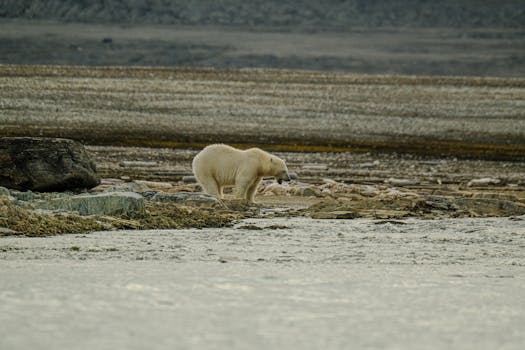
Climate change is one of the most pressing issues of our time, affecting global ecosystems in profound ways. As temperatures rise and weather patterns shift, the delicate balance of nature is disrupted. In this article, we will examine the impact of climate change on global ecosystems, exploring how various species and habitats are affected.
Understanding Climate Change

Climate change refers to long-term alterations in temperature, precipitation, wind patterns, and other elements of the Earth’s climate system. These changes are primarily driven by human activities, especially the burning of fossil fuels, deforestation, and industrial processes that increase the concentration of greenhouse gases in the atmosphere.
Effects on Biodiversity

One of the most significant impacts of climate change is on biodiversity. Many species are struggling to survive as their habitats are altered by rising temperatures and changing precipitation patterns. For instance, polar bears are facing habitat loss due to melting sea ice in the Arctic, while coral reefs are suffering from bleaching as ocean temperatures rise.
Species that cannot adapt quickly enough to these changes face extinction. The Intergovernmental Panel on Climate Change (IPCC) estimates that up to one million species are at risk of extinction due to climate change and habitat loss.
Altered Ecosystem Services

Ecosystems provide essential services that humans rely on for survival, including clean air, fresh water, and fertile soil. Climate change threatens these services by disrupting the natural processes that maintain them. For example, altered rainfall patterns can lead to droughts, affecting agriculture and water supply. Additionally, increased temperatures can lead to the proliferation of pests and diseases, further endangering food security.
Impact on Marine Ecosystems

Marine ecosystems are particularly vulnerable to climate change. Ocean acidification, a direct result of increased CO2 levels, is affecting the health of marine life, particularly organisms with calcium carbonate shells, like mollusks and corals. This can lead to significant changes in marine biodiversity and the services these ecosystems provide, such as fisheries.
Conclusion

The impact of climate change on global ecosystems is vast and complex. From biodiversity loss to the disruption of ecosystem services, the challenges posed by a changing climate are urgent and require immediate action. Protecting our ecosystems is crucial not only for the environment but for human survival as well. It is imperative that we take steps to mitigate climate change and protect the natural world for future generations.





